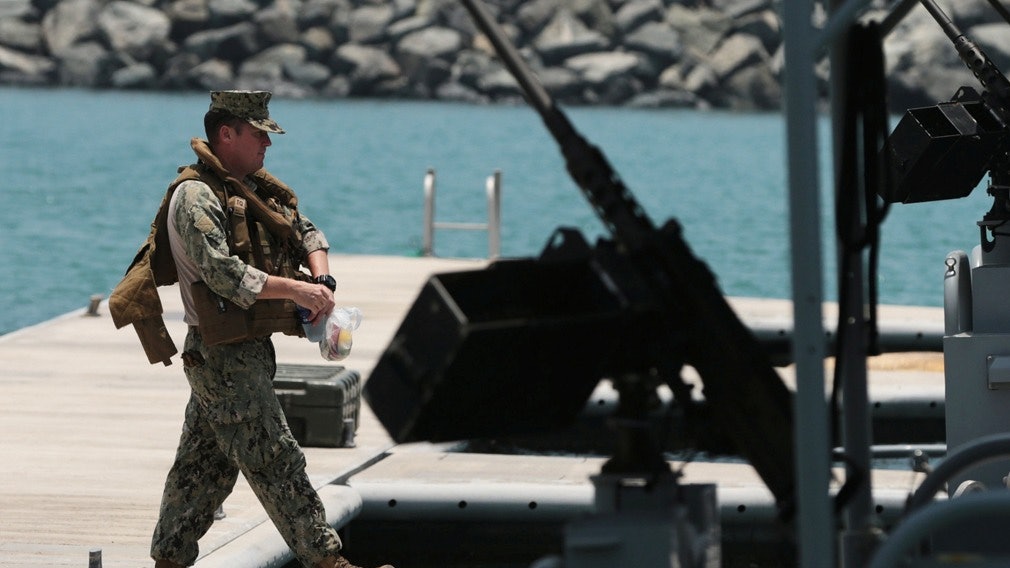Around June 21st, Beijing time, the outside world still focused on the visit of Chinese President Xi Jinping to Pyongyang, and then was amazed at the hospitality of the DPRK. At the same time, a series of rare diplomatic messages from Beijing also made observers feel uncomfortable.
Also on June 20th, Mullah Abdul Ghani Baradar, the chief negotiator of the Afghan Taliban authorities, and Syrian Deputy Prime Minister and Foreign Minister Walid Al-Moualem have traveled to Beijing and hope to get China is supporting the major concerns. This situation is quite different from the low-key role of Beijing in Afghanistan and Syria.
When Beijing began to talk to the Taliban about the idea of “Afro-dominated and Arab-owned”, and heard the Syrian proposal on “China’s assistance in combating militants in Idlib,” Beijing in the Middle East, anti-terrorism and other issues. The increasingly prominent and increasingly active characters have emerged.
It is undeniable that in the face of serious problems such as “sending troops and fighting terrorism”, China, which is accustomed to intervening in the Middle East and Central Asia with flexible means such as economy and culture, will still choose to evade. However, China has finally made a request to emphasize that the Syrian parties need to “resolutely crack down on terrorist organizations listed by the UN Security Council,” and then begin to focus on the situation of Iran and the Persian Gulf. Not to mention that China has long had its own relatively mature views on the Afghan issue. At this point, China’s status in the Middle East stage has gradually moved from behind the scenes to the stage.
Acceptable views of Beijing
For analysts who have long been concerned about Afghanistan, Syria and even Iran, China is gradually playing an increasingly important role in recent years. China is not an active participant like Europe and the United States. Beijing’s steady intervention and involvement in the Middle East does not mean that he has no idea about the region. But China’s ideas are always accepted by the parties. This is also understandable. Since China does not shape its response to the country according to its values, it allows the opposition forces from the Taliban in Afghanistan to some of Syria to gain the opportunity to exchange views without prejudice to China’s interests.
At present, China’s stance of promoting political solutions to domestic problems in Afghanistan and Syria is gradually being actively coordinated and accepted by relevant countries and parties. This was the case with the Afghan Taliban, which had previously sent troops to Beijing. The organization has repeatedly promised to crack down on the “Islamic State” and cut off ties with al-Qaeda, East Turkistan and other international terrorist organizations, and then “ensure its control.” The district is not used to threaten any other country.”
Of course, the proximity of the Afghan Taliban to China also has objective reasons. The Taliban side of Afghanistan is still wary of the United States, and the Pashtuns, the largest tribe in Russia and Afghanistan, have traditional contradictions since the Afghan war, which makes the Taliban side only choose Beijing. But in any case, Beijing’s leading position of “Afro-dominated and A-human-owned” is ultimately chosen by all parties in Afghanistan. And this flexible intervention will also allow China to continue to score on other issues.
By the same token, China’s status adjustment on the Syrian issue is also very prominent. Although all parties, including the Russian and Syrian authorities, are satisfied with China’s current role of political intervention and humanitarian assistance on the Syrian issue, it is considered that the Syrian battlefield is gathering the status of the “East Turkistan” who poses a threat to China’s national security. China and Syria have also agreed to “resolutely crack down on terrorist organizations listed by the UN Security Council.”
According to the information, the Chinese military has decided to provide humanitarian assistance and assistance to the Syrian government after mid-August 2016. Although China could not take the initiative to intervene in the Syrian war, it voted against it after December 2016, creating a favorable international environment for the Russian and Syrian armed forces. When the Russian and Syrian armed forces launched a series of attacks on the “East Turkistan” positions on the Syrian battlefield from September 2018 to early 2019, this series of military operations was also beneficial to China.
Beijing is difficult to avoid security issues
Of course, China’s intervention in the Middle East and other regions will eventually have shortcomings. Compared with Beijing, it is still possible to set up a “Joint Counter-Terrorism Center” in the area of the Wakhan Corridor in Central Asia and Badakhshan in Tajikistan. It is difficult for China to project the armed forces further into the hotspots in the Middle East.
Although the official media of Syria had reported in the early August of 2018 that “the Chinese army intends to participate in the Syrian government’s campaign against Idlib in some form,” the Chinese embassy immediately rumored. Obviously, “being outside the country” is still a bit difficult for Beijing. Not to mention the complexity of religious politics in the Middle East also transcends China’s economy and ability to deal with international political issues.
However, for China, which tries to use the “Belt and Road” to penetrate the Middle East, some problems are hard to avoid. Even if Beijing can bypass the armed conflicts on Afghanistan, Syria and other issues, the Iranian nuclear issue is in the current situation. The problems in the Gulf region that it caused were not circumvented. In the face of China’s crude oil dependence on foreign countries reached 70.9%, nearly half of its crude oil imports come from the current situation in the Persian Gulf region, Beijing is necessary to take necessary measures in front of this storm.
In this way, when Beijing responded to Syria’s “anti-terrorism” issue by “resolutely cracking down on terrorist organizations listed by the UN Security Council and promoting Syria and the region to achieve peace and peace”, Chinese Foreign Minister Wang Yi emphasized in front of the Syrian Foreign Minister. Beijing’s high concern for the “continuously tense” Iranian nuclear issue and its intention to intervene in the “Iridium issue and the situation in the Gulf region” of “sliding to conflict”.
It is undeniable that Beijing is still focusing only on “the parties should maintain rationality and restraint, do not take any action to stimulate the escalation of the situation, do not open Pandora’s box,” and shouted “The United States should change the limits of pressure.” practice”. Many of these methods are still at the level of political settlement.
However, China is a permanent member of the Security Council and an influential power. He also wants to work hard to play some role in making efforts and contributions to “maintaining peace and stability in the Gulf region of the Middle East.” Since the Indian Navy has sent a number of ships to the Persian Gulf and the Gulf of Oman, it has provided “safety protection” for Indian ships sailing here. It is a viable option to try to ensure the safety of the ocean passages by the Chinese navy that has been demonstrated in the Gulf of Aden. For Beijing, which has a limited depth in the Middle East, it will also become a beginning from the back of the scene.












